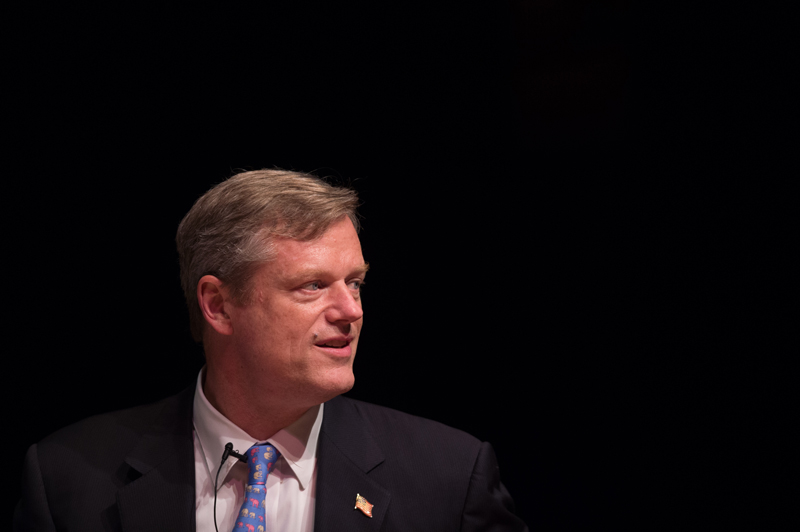
Charlie Baker’s “sweetheart” gaffe was a campaign turning point, a bombshell, a Baker Shocker. It called down the scorn of women’s groups, the Democratic Party, activists, bloggers, tweeters; columnists condemned, cartoonists guffawed, pollsters polled. It’s a game changer alright.
Don’t believe the game changer part. Baker’s bumble won’t matter much at all.
Verbal blunders like Baker’s get the media and insider universe palpitated but rarely make a difference in the outcome of a political campaign.
In The Gamble, the compelling book about the 2012 presidential campaign by political scientists John Sides and Lynn Vavreck, the authors recount a study that showed that media accounts described sixty-eight separate moments as “game changers” in the presidential election. None of them were. The “game-changer” claims may have sold some newspapers and gotten listeners or readers (aka “advertising targets”) to divert their attention to the host of the bombastic charge, but they had little to no effect on the result. Not Barack Obama’s “you didn’t build that [business]”, not Mitt Romney’s evaluation of “forty-seven percent” of the voters as deadbeats, none of it. Instead Sides and Vavreck found that “presidential elections depend on national conditions, especially the state of the economy, and candidates’ efforts to mobilize and persuade voters.”
So let me offer two caveats. First Sides and Vavreck’s work was on presidential, not gubernatorial elections. Second, they were able to bring advanced metrics to the task and isolate the most important variables to the outcome (and to accurately predict the outcome and margin months ahead of time, without polls, a story for another day).
Still, I don’t think the history of game-changing errors here in Massachusetts makes any more a compelling case for all the attention given to gaffes. Yes, I know – how could I not recognize that Martha Coakley blew the 2010 senate special election with her serial blunders? Well, because of The Myth of Martha Coakley’s Mistakes – it wasn’t Coakley’s poor campaign skills but national conditions that cost the Democrats that race. You can go back over all her stumbles – Curt Schilling as a New York Yankee, a quick four day vacation, etc. – and none of them moved the polls.
However, my absolute favorite Massachusetts campaign crisis is Elizabeth Warren’s botching the story of her Native American ancestry. Now that was an attention getting error – terabytes of digital information unleashed, forests felled, commentators in overdrive, Republican operatives tomahawk whooping, otherwise sane moderators opening debates with that burning question.
But the most telling moment of the Native American heritage controversy went largely unnoticed, a poll that asked voters an open ended question, what is the most important issue to you? One person – one - named the matter of Warren’s heritage. Still, the media narrative bobbled merrily along.
We may not hear the end of the sweetheart saga, but that is because it fits into the larger decision of the Democrats to associate Baker with the perception of the Republican brand as anti-women – a view that harmed Scott Brown in his failed re-election effort against Elizabeth Warren and is a key part of the Democrats’ 2014 campaign plan. That is a strategic choice made by the Democrats – part of the Democrats’ effort to “mobilize and persuade voters” - and Baker bestowed them a small gift with his remark.

